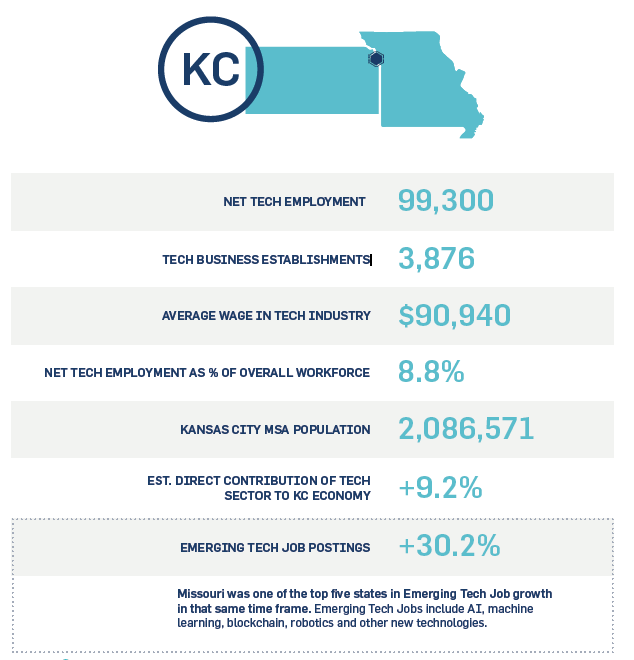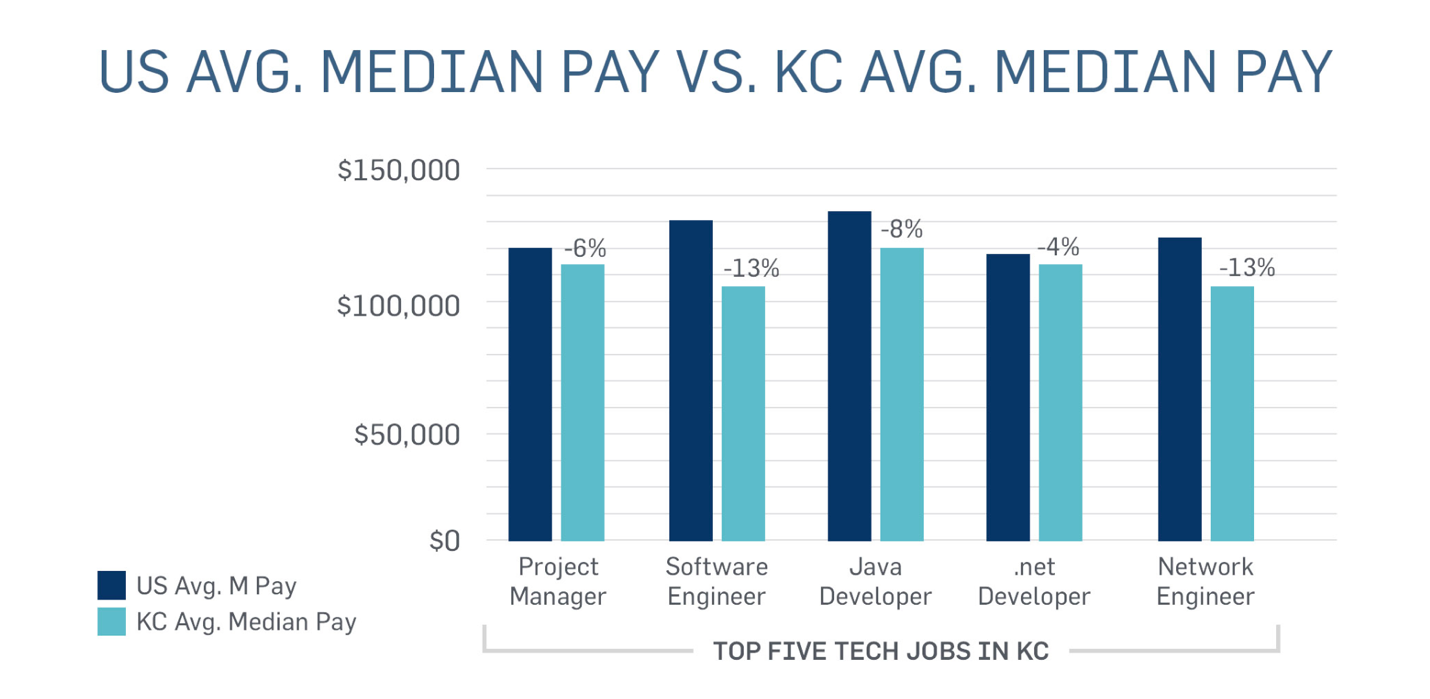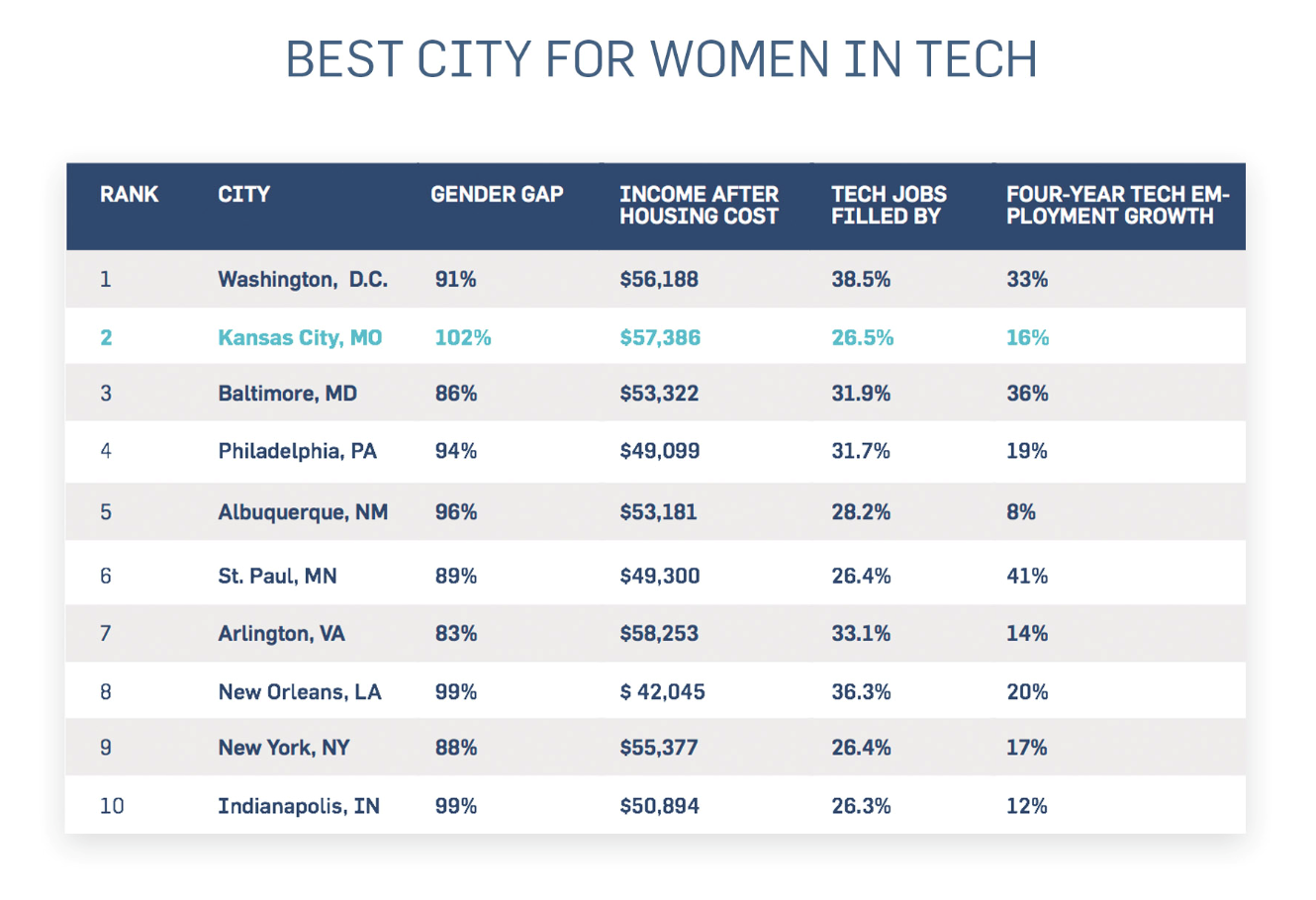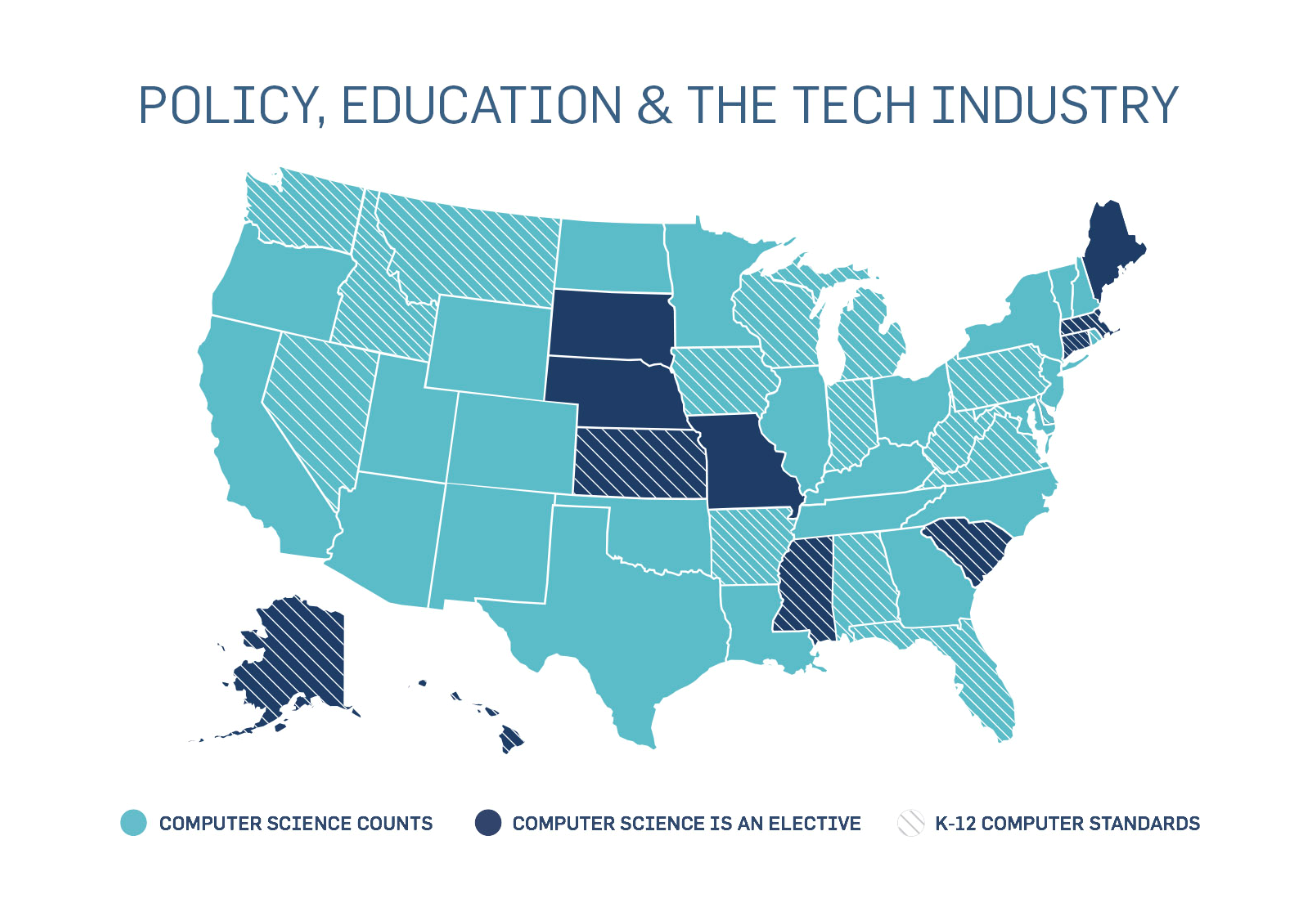Tech is growing faster than any other industry in greater Kansas City, outpacing most of the Midwest. However, with more than 3,000 open tech jobs and only half the local graduates with appropriate skills to fill them, it is important that we understand the current condition of our industry and use data to cultivate growth.
One in every 10 workers in Kansas City is employed by the tech industry. Technology directly contributes almost 10 percent to the local economy. There are 3,876 tech companies in our region, from nimble start-ups to global enterprises, such as Garmin, Cerner, H&R Block, VML and Honeywell.

The recently-released annual KC Tech Specs report tracking the tech industry’s progress, challenges and dynamics, compiled by the KC Tech Council and VML, demonstrates three important opportunities to grow Kansas City’s tech landscape.
Empower Our Industry
In order to thrive, we need skilled workers, which means we need to recruit talent. Since we are competing for talent on a national level, we must compensate accordingly. Paying in-demand, skilled workers at rates closer to the national average will enable us to pull from larger markets and retain local talent. Across the top five in-demand tech jobs in our region, we are paying consistently less than the national average.

Inspire Our Workforce
Another aspect of growing our talent pool means making an effort to increase diversity in the tech workforce. Kansas City is a particularly great place for women, but what if we could make it the best place for women, nationwide? Again this year, Kansas City clocks in at number two nationally for women in tech. How do we get to number one? It’s simple: We need to recruit more women tech workers in Kansas City. In the past four years, female representation in KC’s technology workforce has only grown 16 percent. The No. 1 city on this list has doubled that growth rate.

Educate Our Children
As the third prong in our approach to fueling the growth of Kansas City tech, we have to look to the future. Preparing our kids to meet modern challenges means all kids need early classroom exposure to subjects relevant for tech careers, computer science in particular. By focusing on helping all children adapt to future workforce demands, we will naturally expand the local tech talent pipeline here at home.
Most states have computer science standards and/or allow computer science to count toward high school graduation. There are still a few, including Kansas and Missouri, that are behind when it comes to computer science education.



